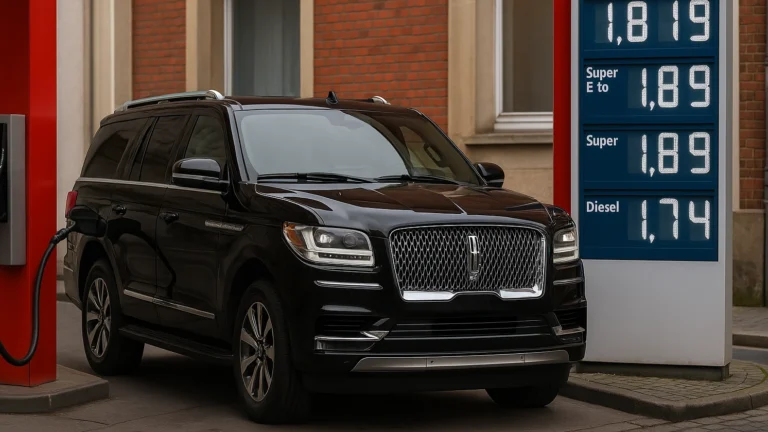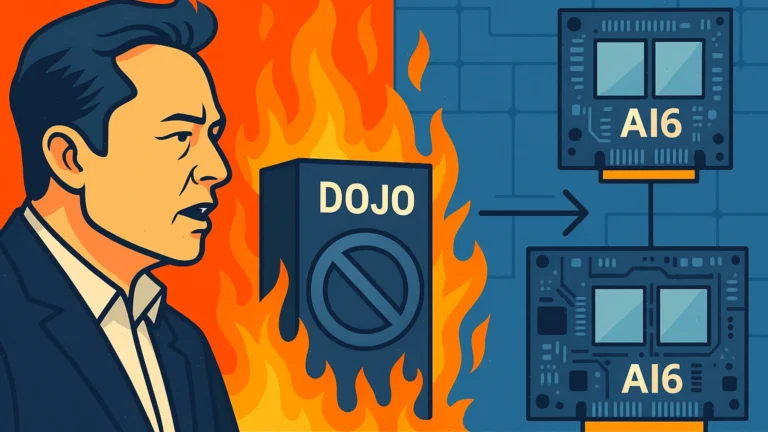
Why Don’t Europeans Buy More American Cars?
Donald Trump is threatening to introduce high tariffs on EU car imports, unhappy that Europeans don’t buy more American vehicles. But why are US cars, with the notable exception of Tesla, not more popular in Europe?
Narrow Streets and Old Cities
Italy’s ancient towns and cities, with their narrow, cobbled streets, offer an obvious explanation for why, in Trump’s words, Europeans “don’t take our cars.”
As car industry analyst Hampus Engellau puts it: “Try to go around Italy in a big SUV. I’ve done it, and it’s very difficult.”
Fuel Prices and Size Preferences
Add cost to the equation, and it becomes clear why American pickup trucks are rarely seen on European roads, notes Mike Hawes, CEO of The Society of Motor Manufacturers & Traders in the UK.
“We tend to have higher fuel prices than the Americans, so we prefer smaller, more fuel-efficient vehicles, while they generally prefer larger vehicles.”
Engellau, an analyst at Swedish investment bank Handelsbanken Capital Markets, also points out that petrol prices are significantly cheaper in the US. “They pay per gallon what we pay per litre,” he says. There are 3.8 litres to a US gallon.
A One-Sided Trade Relationship
Despite these differences, European carmakers have successfully captured market share in the US. As Trump noted, the US imports “millions of cars… BMW, Mercedes, Volkswagen and many others.”
In 2022, 692,334 new EU-made cars were exported to the US, worth €36bn ($37bn; £30bn), while only 116,207 new US-made cars went the other way, valued at €5.2bn.
According to Trump, this imbalance is the result of unfair trading rules and should be corrected.
“Mr. Trump is concerned because the terms of trade are not really equal,” says Engellau, pointing out that the EU’s 10% tariffs on US car imports far exceed the 2.5% tariffs the US currently charges on European cars.
Tariff Tensions and Potential Trade War
These disparities have prompted Trump to suggest raising US tariffs on European automotive imports. He has already imposed 25% tariffs on steel and aluminium — two key materials for car manufacturing.
This move has led EU officials to consider reducing their own tariffs to avoid a potential trade war and to protect the European automotive industry.
However, Trump’s approach hasn’t impressed everyone. Ford CEO Jim Farley commented, “So far what we’ve been seeing is a lot of cost and a lot of chaos,” according to NBC News.
Local Production Is Key
The focus on trade may be misplaced, argues Andy Palmer, former COO of Nissan, ex-CEO of Aston Martin, and now a consultant. “If you can help it, you don’t want to ship cars around the world. They’re big boxes of expensive air,” he says.
The global nature of the automotive industry means that companies aim to manufacture vehicles close to their customers, says SMMT’s Mike Hawes.
For example, several European carmakers like BMW, Mercedes, and Audi produce some of their largest models in North America — and some of these are even shipped back to Europe.
The American Exit from Europe
US carmakers have historically followed similar strategies in Europe. General Motors once owned European brands like Opel/Vauxhall and Saab, but sold Opel in 2017 and shut down Saab in 2009.
Ford divested Aston Martin in 2007, Jaguar and Land Rover in 2008, and Volvo in 2010.
After years of losses, Ford is shifting its European business toward electric and commercial vehicles, moving away from small, affordable models like the Focus.
The company plans to cut 800 jobs in the UK and 2,900 in Germany by 2027 — a 14% reduction of its European workforce.
Competition and Local Loyalty
Tesla manufactures its Model Y for the European market at its factory near Berlin, but even it faces stiff competition from low-cost Chinese electric cars gaining market share.
“Europe is a very tough marketplace,” says Jose Asumendi, head of European automotive research at JP Morgan. “You need to have the right products, and you need to run the manufacturing plants well.”
He adds that local loyalty is a strong factor: German buyers favor BMW, Mercedes, Volkswagen, and Audi; French buyers lean toward Peugeot, Citroen, and Renault; while Italians prefer Fiat and Alfa Romeo.
“There’s a natural inclination for people to buy local champions, especially in Germany, France, and Italy,” Asumendi explains.
While other European countries are more open to foreign brands, the market remains crowded, with strong competition from Japanese, South Korean, and increasingly, Chinese carmakers.
On top of that, different tax systems and the need to market across multiple languages add extra layers of complexity.
Investment Matters More Than Trade Wars
According to Andy Palmer, the problem isn’t really about trade, but about how the industry is built and supported. “Tariffs tend to insulate the beneficiaries from the free market, and this merely makes them lazy, so they stop innovating and fail to remain competitive,” he says.
“It’s not about trade,” Palmer adds. “It’s about investment and collaboration.”
Rather than escalating tariff battles, he believes the focus should be on investing in technology, building strategic partnerships, and producing vehicles closer to the end consumer. Only through such efforts can carmakers remain strong and adaptive in the face of intense global competition.



